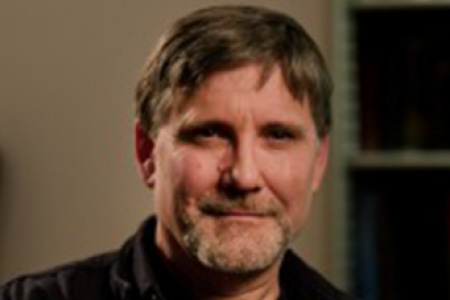Dickinson College Hosts Two Lectures on Technology and the Humanities
 The Christopher Roberts Lecture Series
The Christopher Roberts Lecture Series
Gregory Crane, an expert on ancient Greek authors and the relationship between the humanities and digital technology, will present two lectures as part of Dickinson’s Roberts Lecture Series. Both are free and open to the public.
Crane is the Winnick Family Chair of Technology and Entrepreneurship at Tufts University, where he is also editor-in-chief of the Perseus Digital Library. Additionally, Crane is the Alexander von Humboldt Professor of Digital Humanities at the University of Leipzig in Germany.
Crane’s talks are sponsored by the Department of Classical Studies and mark the 22nd Annual Christopher Roberts Lecture. This lecture series invites noted scholars to present two talks, one on Friday afternoon directed to a wider audience and one on Saturday containing at least one significant original finding or thesis not previously presented in public.
The New Digital Philology in the Intellectual Life of Humanity
Friday, Sept. 27, 4:30 p.m.
Room 106, Althouse Hall, 45 N. College St.
Crane will discuss the ancient discipline of philology, which uses any method available to understand human culture through language. He will explore how new digital methods, augmented by various forms of machine learning, enable new ways of linguistic and cultural understanding. He argues whether you are detecting the linguistic characteristics of Instagram influencers or understanding the contents of a cuneiform digital library, philological thinking is essential.
Philology and Citizenship in the 21st Century
Saturday, Sept. 28, 3 p.m.
Rubendall Recital Hall, Weiss Center for the Arts, 240 W. High St.
Crane asks, how can the new digital philology serve a new generation of students? What skills do scholars need to cultivate, both themselves and in collaboration with colleagues from other disciplines, if they are to help their students use philology to become more engaged and personally successful citizens in the 21st century?
Learn more
- The Christopher Roberts Lecture Series
- The Department of Classical Studies
- Lectures & Symposia
- Read More Dickinson News
Published September 9, 2019